ECONOMY
20 Grocery Store Products That Are Draining Your Wallet
Published
7 months agoon

Shutterstock
When it comes to grocery shopping, it’s easy to overspend on items that seem convenient but aren’t worth the price. From pre-cut produce to brand-name cereals, many of these purchases can be avoided with a bit of planning. Not only are these items marked up significantly, but they often come with unnecessary packaging and additives. By making smarter choices, you can cut down on your grocery bill while still enjoying fresh, healthy, and delicious meals. Here’s a look at some common grocery store buys that are a huge waste of money, and how to avoid them.
Pre-Cut Fruits and Veggies
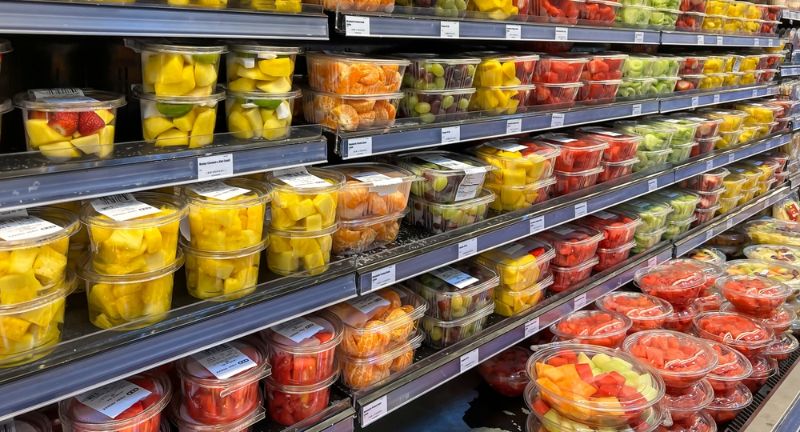
Shutterstock
Pre-cut fruits and veggies are marketed for their convenience, but they come with a hefty price tag. You’re often paying double or even triple what the whole produce would cost. Plus, pre-cut options don’t stay fresh as long, which can lead to unnecessary food waste. By taking a little extra time to chop your fruits and vegetables at home, you’ll save money and keep your food fresher for longer.
Bottled Water

Shutterstock
Bottled water is one of the most overpriced items in grocery stores. Most of the time, it’s just filtered tap water in fancy packaging. For a fraction of the cost, you can invest in a reusable water bottle and a water filter. Not only will you save money, but you’ll also reduce plastic waste, making it a win-win for your wallet and the environment.
Brand-Name Spices
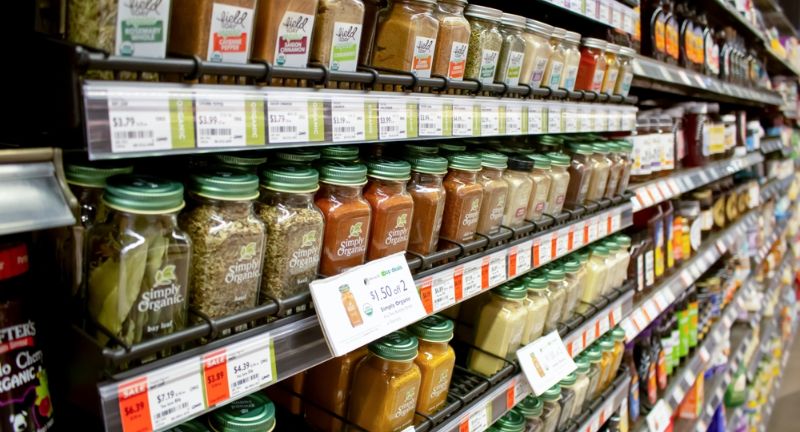
Shutterstock
Brand-name spices might look appealing, but you’re mostly paying for the packaging and marketing. Store-brand or bulk-bin spices are often just as good in terms of quality and flavor. The price difference can be shocking, with brand-name spices costing two or three times as much. By buying in bulk or choosing generic brands, you can save a significant amount on your spice rack.
Pre-Shredded Cheese
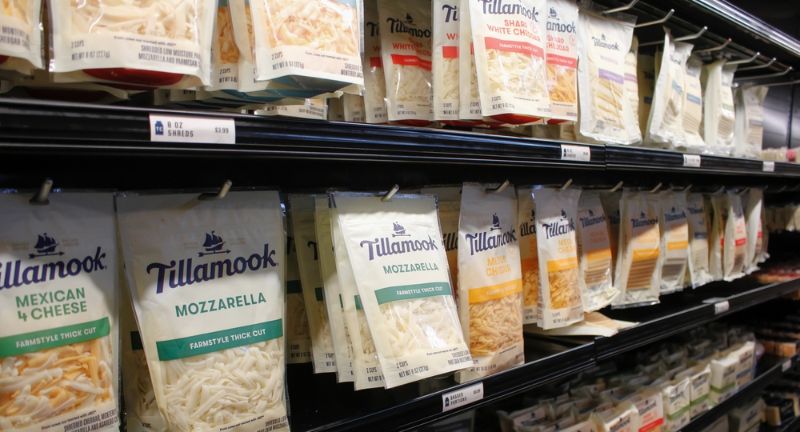
Shutterstock
Pre-shredded cheese is a time-saver, but it’s often more expensive per ounce than block cheese. In addition, it contains anti-caking agents that can affect the flavor and texture of your meals. Shredding your own cheese from a block takes only a few minutes and gives you a fresher product. Over time, the savings from choosing block cheese can really add up.
Single-Serving Snacks
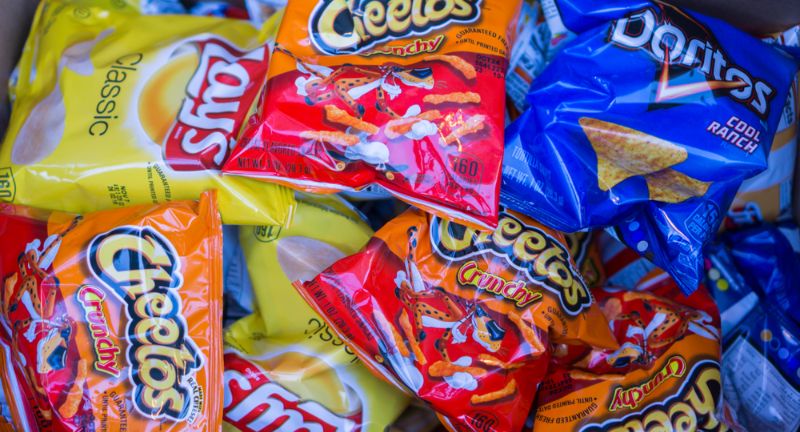
Shutterstock
Single-serving snack packs may seem like a convenient grab-and-go option, but they come at a high cost. The price per ounce is much higher than if you were to buy in bulk and portion them yourself. All that extra packaging also contributes to environmental waste. Save money and reduce waste by investing in reusable containers and portioning out snacks at home.
Ready-Made Salad Kits
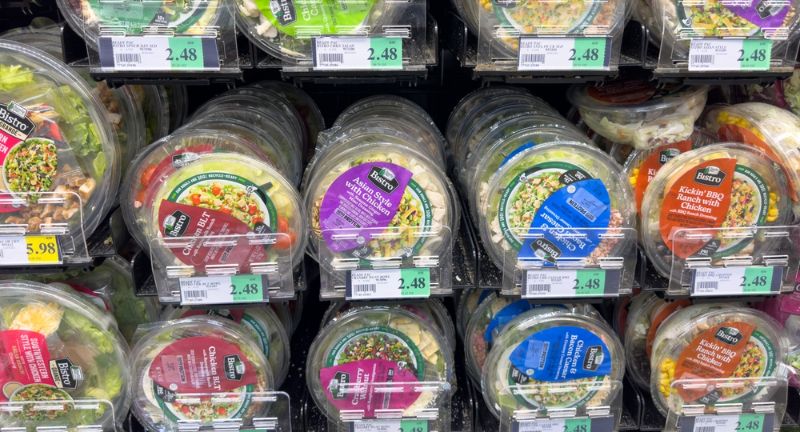
Shutterstock
Salad kits are convenient but come with a significant markup for the pre-packaged greens and dressing. For much less, you can buy the ingredients separately and create your own salads that are fresher and more customizable. The convenience of a kit doesn’t justify the higher price, especially if you have a little time to prep at home. Plus, you get better quality and portion control when making salads yourself.
Organic Junk Food

Shutterstock
Organic junk food may seem like a healthier option, but it’s still junk food. You’re paying a premium for the “organic” label, not for any significant health benefits. Just because something is organic doesn’t mean it’s nutritious or worth the extra cost. Stick to regular snacks in moderation or make your own healthier versions at home for far less.
Baking Mixes
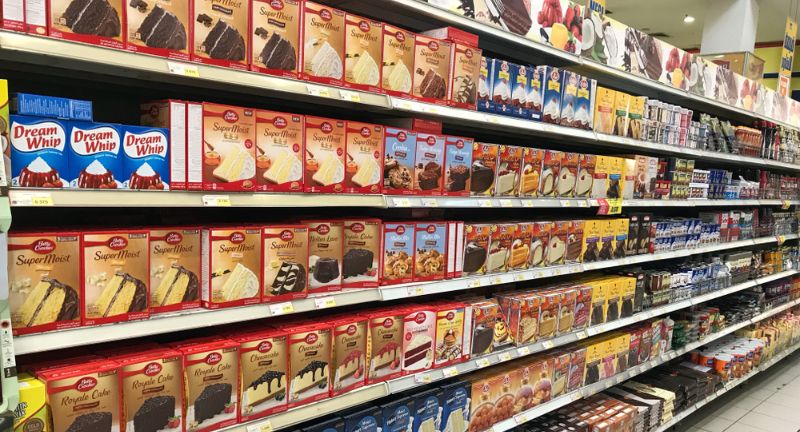
Shutterstock
Baking mixes like pancake or cake mix might seem convenient, but they’re often just pre-measured flour, sugar, and a few basic ingredients. Most of these mixes are marked up significantly compared to buying the ingredients separately. Plus, homemade versions usually taste better and can be customized to suit your preferences. By keeping basic baking ingredients in your pantry, you can easily whip up your own mixes and save money.
Pre-Marinated Meat
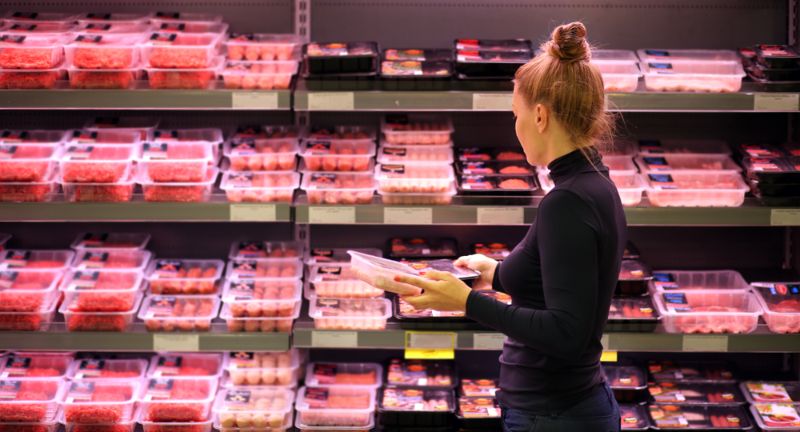
Shutterstock
Pre-marinated meats at the grocery store often come with an inflated price tag due to the added seasoning. You’re paying extra for something you can easily do at home with your favorite spices and sauces. Making your own marinade is quick, cost-effective, and allows you to control the flavor and ingredients. Skip the store’s pre-marinated options and create your own for a fresher, more affordable meal.
Frozen Meals
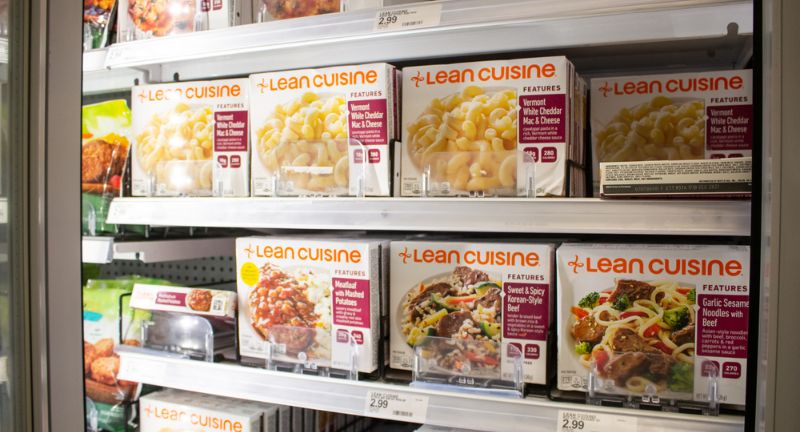
Shutterstock
Frozen meals may seem like a quick and easy dinner solution, but you’re paying for convenience, not quality. The cost of a frozen meal is often much higher than cooking a fresh meal from scratch. Homemade meals not only save you money, but they’re also healthier, fresher, and can be tailored to your taste preferences. Preparing meals in bulk and freezing them yourself is a more affordable and healthier alternative.
Premium Ice Cream
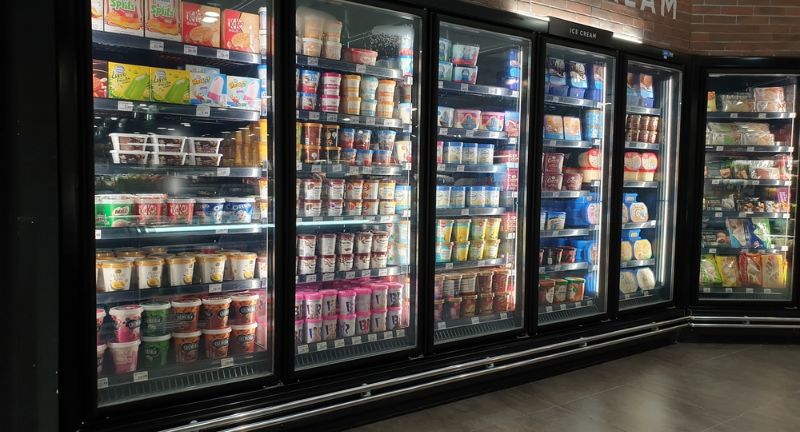
Shutterstock
Premium ice cream brands often charge a hefty price for what is essentially just frozen milk, sugar, and flavoring. While the packaging and marketing may look enticing, store-brand ice creams are often just as tasty. The higher cost doesn’t necessarily mean better quality or flavor. Save money by opting for store brands or making your own ice cream at home with simple ingredients.
Specialty Coffee Creamers
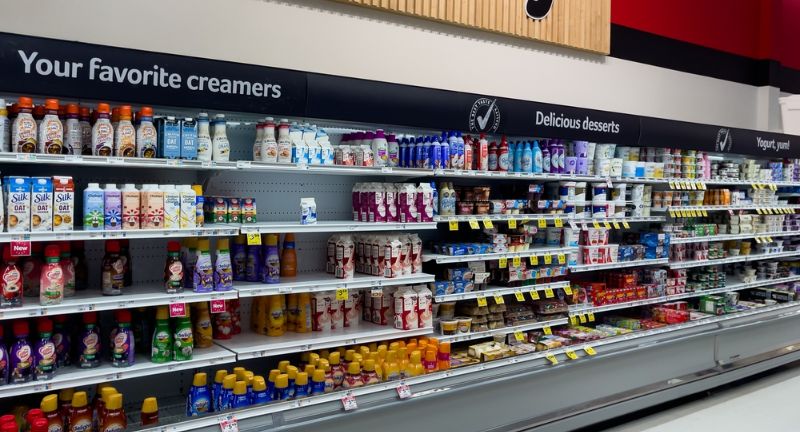
Shutterstock
Specialty coffee creamers are often little more than flavored sugar and artificial ingredients, yet they’re sold at a premium price. Making your own coffee creamer at home is surprisingly easy and much cheaper. You can customize the flavors to your liking using basic ingredients like milk, cream, and vanilla. Not only will you save money, but you’ll also avoid the unnecessary additives found in store-bought versions.
Name-Brand Cereals
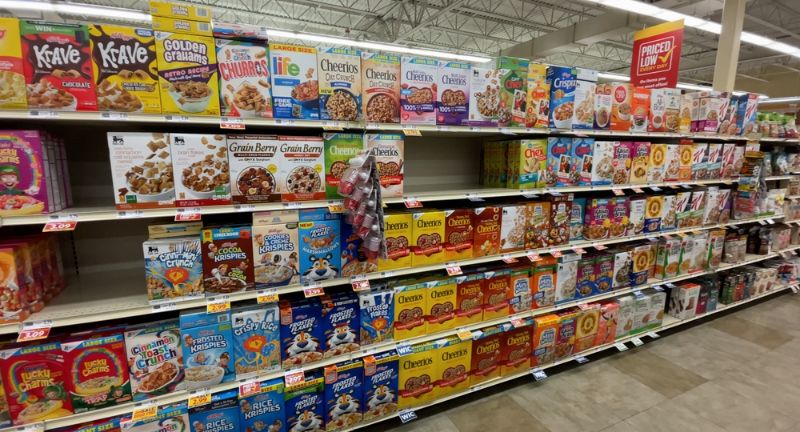
Shutterstock
Name-brand cereals can be pricey, and they often don’t offer anything different from their generic counterparts. The store-brand versions typically contain the same ingredients, taste just as good, and cost significantly less. In many cases, you’re simply paying for the brand name and marketing. Switching to generic cereal can be a painless way to cut down on your grocery bill.
Snack Packs of Fresh Produce
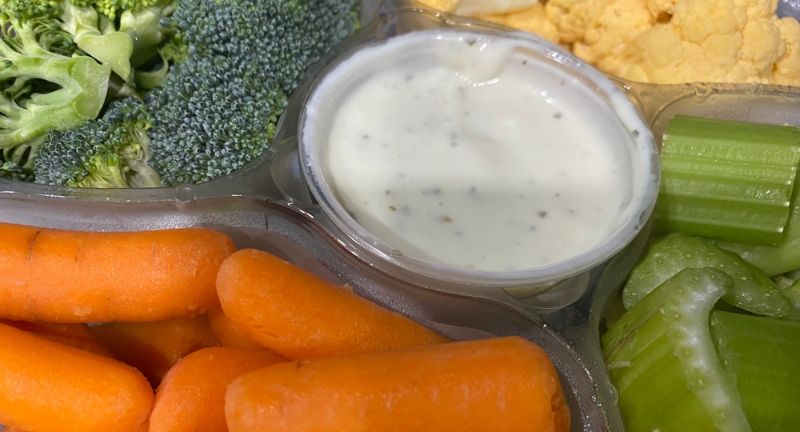
Shutterstock
Snack-sized bags of fresh produce like baby carrots or apple slices are often sold at a high markup for the convenience they offer. While they’re quick to grab on the go, you’ll save a lot by buying whole produce and portioning it out yourself. A few minutes of prep time can dramatically reduce your grocery bill without sacrificing nutrition. Plus, you can store the produce in reusable containers, reducing both waste and cost.
Single-Use Cleaning Wipes

Shutterstock
Single-use cleaning wipes might seem like a household essential, but they are not only costly but also create unnecessary waste. Instead of buying wipes, consider using reusable cloths and an all-purpose cleaner for a more cost-effective and eco-friendly solution. The initial investment in reusable supplies is quickly offset by the money you’ll save over time. Plus, this approach is kinder to the environment and just as effective at keeping your home clean.
Packaged Deli Meats
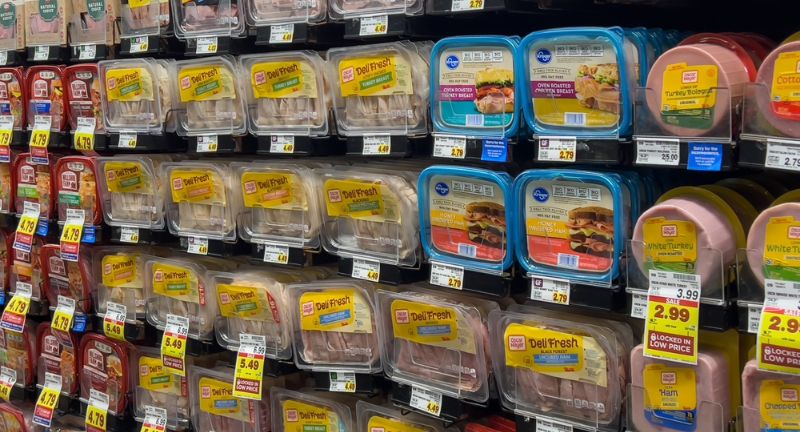
Shutterstock
Pre-packaged deli meats are often much more expensive than getting them fresh from the deli counter or buying a whole roast to slice yourself. The convenience of pre-packaging comes with a premium price, and the quality may not be as fresh. Slicing your own deli meats not only saves money but also allows you to control portion sizes. For a little extra effort, you can enjoy fresher, more affordable lunches.
Gourmet Salad Dressings
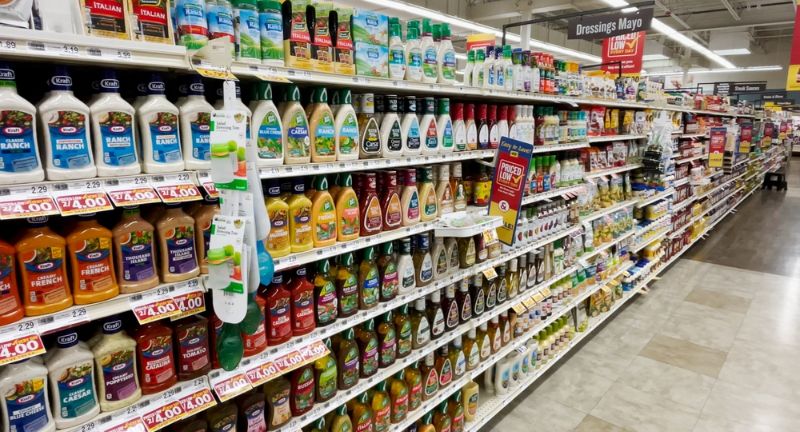
Shutterstock
Gourmet salad dressings can be surprisingly expensive for what is essentially a mix of oil, vinegar, and a few spices. Making your own salad dressing at home is incredibly simple and far more affordable. With just a few basic ingredients, you can create a delicious, fresh dressing without all the preservatives found in store-bought versions. Plus, homemade dressings allow you to experiment with flavors and adjust to your taste preferences.
Microwave Popcorn

Shutterstock
Microwave popcorn may seem like a quick snack option, but it’s expensive compared to buying popcorn kernels in bulk. Making stovetop popcorn is not only cheaper, but it also allows you to control the flavor and avoid unhealthy additives. A large bag of kernels can last for months and make dozens of servings, while a box of microwave popcorn is gone in a few uses. Plus, stovetop popcorn is often fresher and tastier.
Specialty Nut Butters
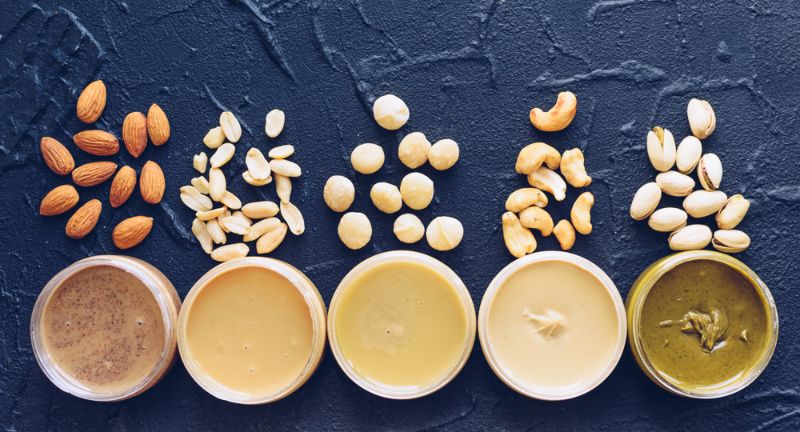
Shutterstock
Specialty nut butters, especially those with added flavors or oils, often come with a high price tag. While they may seem appealing, basic nut butters, or even homemade versions, offer the same nutritional benefits for much less. You can easily make your own nut butter at home using a food processor, and it’s a fun way to experiment with different flavors. Skipping the premium brands will save you money without sacrificing taste or nutrition.
Pre-Made Guacamole
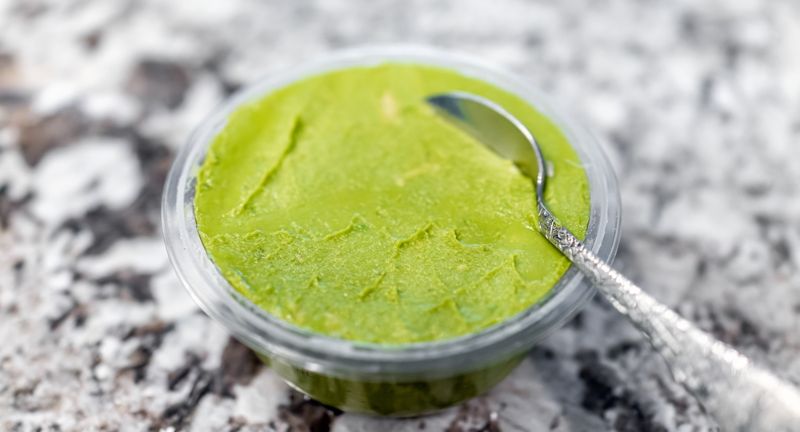
Shutterstock
Pre-made guacamole can be shockingly expensive, especially when you consider that avocados and a few seasonings are all it takes to make it fresh at home. Homemade guacamole is not only cheaper but also fresher and customizable to your taste. Pre-made versions often contain preservatives that affect flavor and texture. By mashing up a few avocados and adding simple ingredients, you can enjoy fresh guacamole for a fraction of the cost.
Conclusion

Shutterstock
By being mindful of the grocery store items that drain your wallet, you can make smarter purchasing decisions that benefit both your finances and your lifestyle. It’s easy to fall into the trap of convenience and marketing, but with a little extra effort, you can avoid overspending on unnecessary products. From cooking meals at home to buying in bulk, small changes can make a big difference. The next time you head to the grocery store, keep these tips in mind to save money without compromising on quality. Ultimately, it’s all about making informed choices and prioritizing what truly matters in your cart.
Related Topics:

More From Financially+
-


Things You Need To Stop Wasting Your Money On
-


Does Warren Buffett’s Stockpile of Cash At Berkshire Hathaway Signal…
-


10 AI-Proof Jobs That Pay Over $70K
-


5 Important Financial Tips To Deal With Inflation
-


5 Biggest Threats Social Security Faces In 2024
-


20 Steps to Take Right Now If You’re Facing a…
-


9 Jobs That Pay Big Money And You Need Zero…
-


38 Things To Consider Before Buying Your Next Car
-


How to Stay Broke: 35 Foolproof Ways to Waste Your…